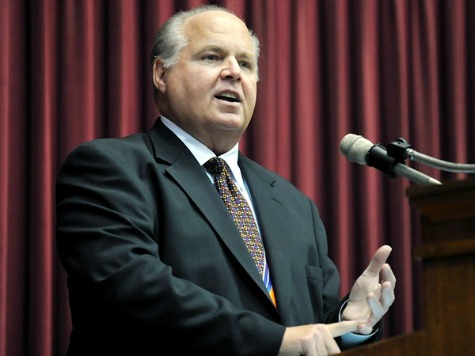
For his final Campaign Stops editorial from November 18, New York Times columnist Thomas B. Edsall asked the seminal question left arising from the results of the re-election of Barack Obama: Is Rush Limbaugh’s Country Gone?
Beginning his piece with a quote from Limbaugh’s show where the most listened-to talker in the nation expressed his fear that “we’ve lost the country” to Obama and his followers, Edsall noted that Limbaugh’s worries “echoed a Republican theme” that was voiced before Obama’s re-election.
Barack Obama has unleashed a coalition of Americans “who are dependent upon government, who believe that they are victims, who believe the government has a responsibility to care for them, who believe that they are entitled to health care, to food, to housing, to you-name-it — that that’s an entitlement. And the government should give it to them” — as Mitt Romney put it in his notorious commentary on the 47 percent.
Edsall goes on to agree with Limbaugh that our country has drifted decidedly in favor of big government, nanny-state ideals and away from freedom and liberty — though he doesn’t say it that way, to be sure.
Edsall then proceeds to explore the polling data that shows that voters, young and old alike, are increasingly leaning in favor of a more expansive government. Naturally, Edsall goes to pains to note that this rising feeling in favor of big government “represents a direct threat to the striking array of government benefits for the affluent that the conservative movement has won over the past 40 years.”
These include the reduction of the top income tax rate from 50 percent in 1986 to 35 percent; the 15 percent tax rate on dividend and capital gains income, which was 39.9 percent in 1977; the lowering of the top estate tax rate from 70 percent in 1981, with just $175,000 exempted from taxation, to a top rate of 35 percent this year with $5.1 million exempted from taxation.
This has set up “an exceptionally bitter face-off between the left and the right,” Edsall says.
He ends with this prediction of the contentious times to come:
In broader terms, the political confrontation pits taxpayers, who now form the core of the center-right coalition, against tax consumers who form the core of the center-left. According to the Tax Policy Center, 46.4 percent of all tax filers had no federal income tax liability in 2011 (although most people pay a combination of state, sales, excise, property and other levies).There are clear exceptions to this dichotomy, as many Social Security and Medicare beneficiaries (tax recipients) vote Republican, and many college-educated upper-income citizens of all races and ethnicities (tax payers) vote Democratic. Nonetheless, the overarching division remains, and the battle lines are drawn over how to distribute the costs of the looming fiscal crisis. The outcome of this policy fight will determine whether Limbaugh is correct to fear that his side has “lost the country.”
On his November 19 show, Limbaugh responded to Edsall’s argument recognizing that The Times columnist agrees with him about the import of the election.
Obama has discredited the private sector. Obama has made the private sector an enemy to people and the government their friend. It’s what he set out to do, and look at how successful he’s been at it. So successful that now the Republican Party wants in on the game.
You know, playing Santa Claus doesn’t sell when you got 4% unemployment, but when you have 8% or 9% unemployment, it does. So you wreck the economy, you jack up unemployment, you do it on purpose, and you hold out the government as the answer, the savior, as the immediate savior.
But Limbaugh didn’t imagine that Thomas B. Edsall was agreeing with him favorably. As the popular talk show host ended his discussion of the piece, he said, “Thomas B. Edsall in this New York Times piece agrees with me. ‘Is Rush Limbaugh’s Country Gone?’ Yes. The difference is, he’s happy about it. I’m not. But he agrees that it’s gone.”

COMMENTS
Please let us know if you're having issues with commenting.